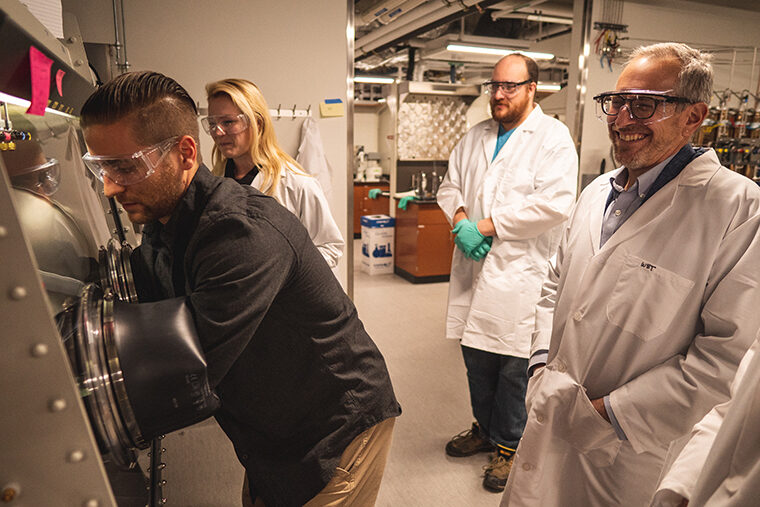The NSF Center for Sustainable Polymers (CSP) has been awarded a $20 million grant renewal from the National Science Foundation in support of its research aimed at developing and implementing polymers derived from renewable resources. The CSP is based at the University of Minnesota and partners with academic and industrial researchers from around the country, including at Washington University in St. Louis.
William Tolman, the William Greenleaf Eliot Professor of Chemistry and associate dean of research in Arts & Sciences, is a senior investigator with the CSP. As one of the CSP’s founding members, Tolman and his research group have participated in numerous projects under the center’s rubric for many years.
“We are excited to continue our CSP research at WashU, which involves cutting-edge collaborative work by graduate students, postdoctoral associates, undergraduate students and faculty from multiple institutions,” Tolman said. “This work focuses on using synergistic experimental and theoretical approaches to understand the molecular mechanisms of catalytic reactions for the preparation of new chemical feedstocks and biorenewable polymers from plant-based starting materials. We are also enthusiastically engaged in CSP activities that serve to educate the broader public about sustainable polymers and about the role of scientific research in positively impacting society.”
The CSP, one of only nine Phase II Centers for Chemical Innovation ever funded by the NSF, conducts basic research on polymers, the molecules that make up plastics, in support of its mission to discover the next generation of environmentally friendly plastics. The center’s work in green chemistry aims to protect the environment and ensure a sustainable society for future generations. The funding also supports educational initiatives to build awareness about plastics’ environmental impact.
Read the full award announcement from the University of Minnesota.



Comments and respectful dialogue are encouraged, but content will be moderated. Please, no personal attacks, obscenity or profanity, selling of commercial products, or endorsements of political candidates or positions. We reserve the right to remove any inappropriate comments. We also cannot address individual medical concerns or provide medical advice in this forum.